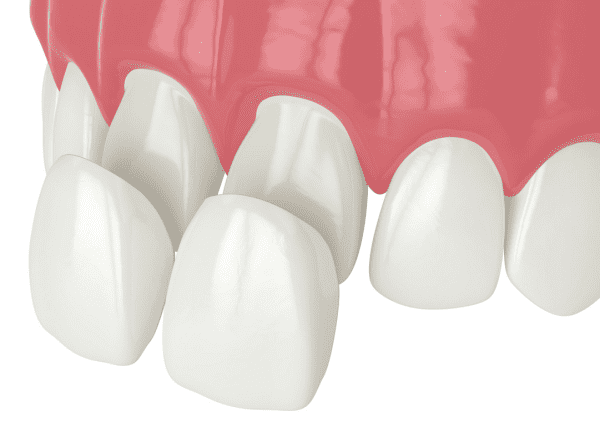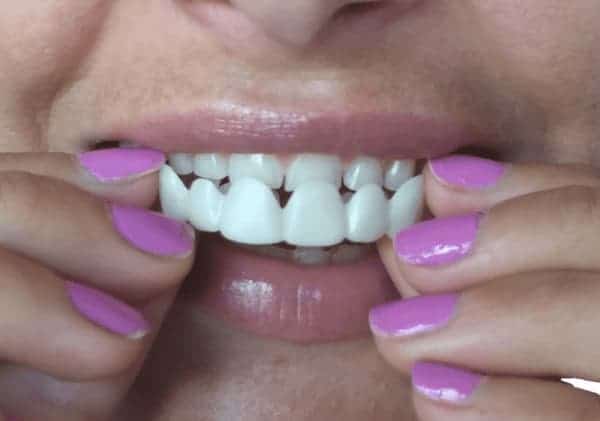Dental veneers are the most popular type of dental work for people with discolored teeth or those who want to improve the appearance of their teeth. It is a painless procedure that can help restore the natural look of your smile.
In 2014, they cost $5,000 and up. But are they really worth it?
The veneering process involves cutting into the tooth surface, then covering it with a thin resin layer that protects it from further damage.

All dental work comes with several benefits. But regardless of what you are getting, there is always a risk that something may go wrong. This can happen because there is no standard procedure for applying the correct type of veneers to your teeth.
Undoubtedly, dental veneers (also known as dental bridges) are the most common procedure for smile improvement. However, there are significant risks involved with their use, and the lack of good communication between dentist and patient may have adverse effects.
What Is a Dental Veneer?
It is one of the most durable and long-lasting materials available to dentists. Veneers can be made from various materials, including ceramics, porcelain, and composite materials.
Dentin is the space within the tooth that these frames cover. The process does not alter the shape of the tooth, but it does change where the tooth is located in relation to the rest of the teeth and when it’s fully formed.
Additionally, dental veneers can be used to repair damaged or missing teeth. You can use them to replace teeth that have been knocked out and left behind in a tooth socket, so-called ‘lateral’ dentures. When there is not enough space for all the teeth in the mouth, lateral dentures are a very popular choice.

Veneers process
Veneers are thin, colored strips of dental material placed on the affected teeth.
There are three main types:
- composite,
- porcelain,
- and veneers.
One of the first steps is to educate yourself about what is involved. Having a personal dental professional remove your natural teeth and replace them with veneers will be more expensive than having your teeth fixed. While waiting for the veneers to take effect, you can get routine dental checkups, extractions, and cleanings.
Although veneers require regular cleaning, they are cheap, comfortable, and can last up to a decade.
The procedure can be done by either an electrophysiologist or an orthodontist.
Are veneers durable in the long run?
So, you’ve decided to have your teeth whitened. You have to think about the long-term health risks associated with having veneers.
Many people ask themselves, “How long do veneers last?” The answer to that question depends on how you care for them.
Some are made with calcium silicate and chromium oxide, which have a very long life span compared to other materials, including gold and chrome. However, some materials used in veneer applications can build up bacteria and fungus over time. This makes it difficult to clean and maintain the fabric if it’s not properly cared for.
Unfortunately, there is no scientific proof that the veneers will never chip or break off and cause serious problems.
They can take up to seven years to wear in and can cause long-term issues if not handled correctly.

Veneers: Pros and Cons
You may not consider them to be a viable alternative to traditional teeth, but that is changing. Recently, veneers have become the most popular way to fix teeth that are missing in the front or back.
They have become an accepted and standard treatment option for many people seeking dental treatment. While veneers may not be an ideal solution for everyone, it’s essential to evaluate the pros and cons of this dental treatment before you decide.
Advantages of Getting Veneers
The benefits of veneers include a much higher level of tooth strength and better overall health.
They are a great way to modify your smile.
Veneers are the most popular way to remove chips or stains from teeth.
They are more affordable than braces and can be done in a short amount of time.
They are almost entirely invisible to the naked eye and have no negative effects on the teeth or mouth compared to dentures made of dental cement.
It can be done at a dentist’s office, or you can do it at home.
Veneers can be used to fill in gaps and uneven edges of teeth, so they can improve your smile and make it appear more natural. They are also fantastic for whitening your teeth.
There’s nothing like a smile that is the result of a beautiful, flawless veneer. With such a strong influence on how we look, it only makes sense that great-looking teeth are essential.
What are the disadvantages of veneers?
So, are veneers a bad idea? Dentists are notoriously hard to please, and dental veneers can be challenging to obtain. This is because they are in the same class of dental work as root canal work and require a lot of preparation.
Veneers are the most expensive part of tooth restoration. Although they are safe, they can be costly.
Despite their popularity, there is no objective evidence to support or refute that veneers are superior to other teeth whitening methods.
They can wear away over time, leading to sensitivity or inflammation in the mouth and tooth decay.
Veneers require regular cleaning and maintenance.
A recent study found that people who had veneers on their teeth were more likely to have misaligned teeth than people who received dental care without veneers. They can be a great way to improve your smile and confidence in your appearance, but they could also be a significant financial risk.
Some people have reported that the veneers can be uncomfortable and make their teeth appear crooked or unnatural. To help protect your natural teeth, we recommend keeping your veneers away from the biting area (the gum line) of your mouth. You should also avoid eating while wearing them. Instead, make sure to wear them for just half a day at a time as you get used to them.
Conclusion: Are veneered teeth worth it?
Veneers are cosmetic dental implants that can be used to restore the natural look of your teeth. The process involves filling or bonding dental implants with titanium, thereby restoring your natural teeth. The veneers are filed into the shape you want before being bonded to the rest of your teeth with a bonding agent. The procedure is not painful and requires no surgery.
They can be used on any tooth because they can be placed in any location on the tooth’s surface.
• Low cost, • Good for your teeth, • Long shelf life, • A wide range of colors available at reasonable prices, • Improved esthetics, whether natural or synthetic. However, there are some potential downsides to having this cosmetic procedure. Veneers may not be the best option for everyone. Some people experience burning, stinging, or irritation after having this procedure. This can be due to an allergy or an even more severe issue. In addition, veneers do not eliminate the possibility of a residual false impression on the tooth. The risk of a false impression from veneers is higher than with dentures because it takes time for the denture to set in and take over the spaces where the veneer was placed.
While this choice is entirely up to you, it’s essential to know the facts about veneers before deciding.
“Dentistry is a fast-paced environment where you may encounter a wide variety of problems and have to work with a variety of people. Therefore, it is important for dentists to have the best possible dental care tools at their disposal. For example, veneers can be a very helpful tool to quickly restore your teeth if you have already had dental issues in the past. However, there are also some disadvantages to veneers that should be considered. —Christopher Naylor.


